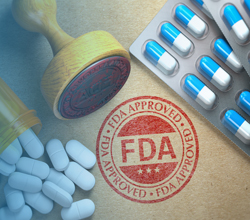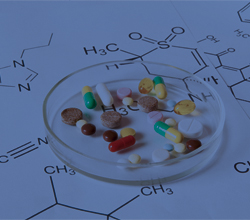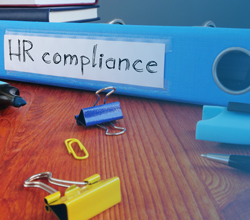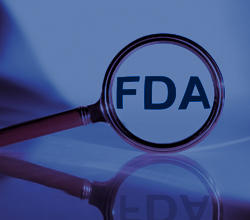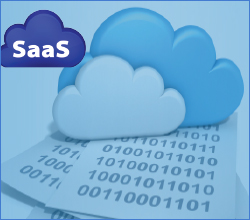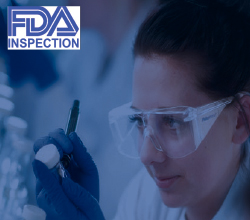
Cybersecurity - The Latest US FDA Requirements
 John E Lincoln
John E Lincoln
 90 Min
90 Min
Product Id: 706949
Cybersecurity is the art of protecting networks, devices, and data from unauthorized access or criminal use. It is the practice of ensuring confidentiality, integrity, and availability of information, and is a rapidly growing problem for industry.

Validation Statistics for Non-Statisticians
 Alan M Golden
Alan M Golden
 60 Min
60 Min
Product Id: 706944
In this program, we will discuss the common statistics tools and techniques used in validation. Through real world examples and interactive exercises, we will demonstrate the basic concepts of statistics and how to apply them to your validation projects. Discussion will center around measures of variance, sample distributions, and expressions of variance. The session will conclude with a discussion of the concept of process capability and using process capability to set acceptance criteria for validation.

How to Comply with FDA Regulations for Tobacco-Related Products: Computer System Validation, 21 CFR Part 11, & Data Integrity
 Carolyn Troiano
Carolyn Troiano
 90 Min
90 Min
Product Id: 706937
This webinar is intended for those working in the FDA-regulated tobacco and related industries, including e-liquids (vapor), e-cigarettes, cigars, and smokeless tobacco products. Functions that are applicable include research and development, manufacturing, Quality Control, distribution, clinical testing and management, adverse events management and post-marketing surveillance. You should attend this webinar if you are responsible for planning, executing or managing the implementation of any system governed by FDA regulations, or if you are maintaining or supporting such a system.

Aseptic Processing Overview and Validation
 Kelly Thomas
Kelly Thomas
 90 Min
90 Min
Product Id: 706212
This course will provide an overview of the requirements for aseptic and bulk manufacturing operations, including facility design, contamination controls and acceptable personnel behaviors.

Analytical Method Validation and Transfer
 Kelly Thomas
Kelly Thomas
 90 Min
90 Min
Product Id: 706186
This course will provide a thorough review of regulatory guidelines on method validation and transfer. It provides guidance on how to perform QC analytical test method validations and transfers.

Good Documentation Practice (GDP) and FDA Validation Compliance for Regulated Computer Systems and Data
 Carolyn Troiano
Carolyn Troiano
 90 Min
90 Min
Product Id: 706925
Computer system validation has been regulated by FDA for more than 30 years, as it relates to systems used in the manufacturing, testing and distribution of a product in the pharmaceutical, biotechnology, medical device or other FDA-regulated industries. The FDA requirements ensure thorough planning, implementation, integration, testing and management of computer systems used to collect, analyze and/or report data. Electronic records and electronic signatures (ER/ES) came into play through guidelines established by FDA in 1997, and disseminated through 21 CFR Part 11. This code describes the basic requirements for validating and documenting ER/ES capability in systems used in an FDA-regulated environment.

Cleanroom, Microbiology and Sterility Assurance Practices for Drug and Device Manufacturers
 Kelly Thomas
Kelly Thomas
 90 Min
90 Min
Product Id: 706927
This course will educate you about various key elements of sterility assurance and contamination control such as Cleanroom Regulations, Classification, Sources, and types of particles, Design Requirements, Validation/Qualification, Operations, Environmental Monitoring Program requirements, Excursion investigations, Data Trending, Microbiological processes/methodology, Cleanroom cleaning/disinfection.

Risk Management of Raw Materials in a GMP Environment
 Barry A Friedman
Barry A Friedman
 90 Min
90 Min
Product Id: 706909
The objective of this live, interactive webinar is to explore raw materials in a cGMP environment, their various regulatory requirements and how they may affect the timeline of meeting the release date of your Company’s products. Please plan to bring additional personnel to the webinar to obtain cross-Departmental training.

Computer System Validation (CSV) vs. Computer System Assurance (CSA): Aligning the Agile Methodology to the GAMP®5 "V" Model and System Development Life Cycle (SDLC) Methodology
 Carolyn Troiano
Carolyn Troiano
 120 Min
120 Min
Product Id: 706921
As part of the Case for Quality program US FDA Center for Devices and Radiological Health noted how an excessive focus by industry on compliance rather than quality may be diverting resources and management attention toward meeting regulatory compliance requirements vs. adopting best quality practices. There has also been a lower than anticipated investment in automation and digital technologies, which could greatly improve quality and process control. A key element is a risk-based, product quality and patient-centric approach to Computer System Assurance (CSA) vs. the traditional Computer System Validation (CSV) waterfall approach. This encourages critical thinking based on product and process knowledge and quality risk management over prescriptive documentation driven approaches.
This is where FDA determined that “WHAT” is required can be done (the “HOW”) in different ways and does not have to be according to the “checklist” mindset of most CSV work, where you create documents without specifically addressing the risk of potential failure of each requirement.
GAMP®5 supports the use of incremental, iterative, and evolutionary approaches including agile, for development of custom applications. Keys to success include a robust Quality Management System and well trained and highly disciplined teams following well-defined processes supported by tools and automation.

Terminally Sterilized Pharmaceutical Products – Parametric Release ( New USP<1222>, November 2019) and its Relationship to the new British Terminal Steriliation Methodology (March 2019)
 Barry A Friedman
Barry A Friedman
 90 Min
90 Min
Product Id: 706908
This General Information Chapter (USP<1222>) will first cover the general issues related to parametric release, regardless of the modes of sterilization, and then discuss some specific modes of sterilization. It will also include information on USP<55> Biological Indicators as well as EU “Guideline on the Sterilization of Medicinal Products…” (March 2019). The webinar will discuss why it provides more accurate information than the sterility test regarding the release of terminally sterilized product to the marketplace.

Advanced Auditing for Data Integrity
 Joy McElroy
Joy McElroy
 90 Min
90 Min
Product Id: 705275
This training program will teach attendees best practices on how to perform audits for data integrity within their organization. Attendees will also learn how to centralize management and eliminate silos.

Computer System Validation and Part 11 Compliance
 Joy McElroy
Joy McElroy
 60 Min
60 Min
Product Id: 705427
This webinar will discuss in detail the requirements of 21 CFR part 11 and updated European Annex 11 regulation including requirements for local, SaaS, and cloud hosting. It will also offer techniques to implement a computer system using risk-based validation to gain maximum productivity and reduce cost by as much as two thirds.

Human Error and Cognitive Load: How to Reduce Memory and Attention Failures
 Ginette M Collazo
Ginette M Collazo
 60 Min
60 Min
Product Id: 704210
This training program will discuss the types of human error, the taxonomy of human error, human error reduction initiatives, individual performance, cognitive load and human error, cognitive load categories, and more.

How to Survive a DEA Inspection Series: For DEA Registered Analytical Labs and Research Facilities
 Carlos M Aquino
Carlos M Aquino
 90 Min
90 Min
Product Id: 704617
The training program will cover DEA record-keeping requirements and effective security that a DEA registrant must comply with when handling controlled substances. It covers elements of what occurs during an unannounced inspection and the auditing methods.

FDA’s Expectations from Supplier Management for GMP: Quality Agreements and More
 Danielle DeLucy
Danielle DeLucy
 60 Min
60 Min
Product Id: 704659
The FDA requires that manufacturers of pharmaceutical products have a documented process to assess its suppliers and contract manufacturers, that they have implemented that process, and that the process is effective. This training program will explore how having an effective supplier relationship management program will result in streamlining the supply chain, ensuring a more consistent level of quality components, materials and components, and be more cost effective to the manufacturer.

How to Survive a DEA Inspection - Veterinary Medicine and Controlled Substances
 Carlos M Aquino
Carlos M Aquino
 90 Min
90 Min
Product Id: 704885
This webinar will discuss federal laws on administering and dispensing veterinary medicine, penalties for non-compliance, DEA required records and effective methods to prevent unauthorized use of controlled substances.

How to Conduct Successful Supplier Audits
 Danielle DeLucy
Danielle DeLucy
 60 Min
60 Min
Product Id: 704499
This training program will provide participants with a working knowledge of supplier audits. The why, when, who, how, and what of conducting a supplier audit will be reviewed to ensure that your supplier can meet all your expectations.

How to write SOP's that Avoid Human Error
 Ginette M Collazo
Ginette M Collazo
 90 Min
90 Min
Product Id: 704418
This training program will address the common human errors and deviations related to the use of procedures. It will also offer best practices for writing SOP’s to reduce the likelihood of human errors.

Root Cause Analysis - The Heart of Corrective Action
 Betty Lane
Betty Lane
 75 Min
75 Min
Product Id: 703391
This webinar will discuss how root cause is an essential part of a corrective action system and will provide some examples of how to perform root cause analysis.

Handling OOS Test Results and Completing Robust Investigations
 Danielle DeLucy
Danielle DeLucy
 90 Min
90 Min
Product Id: 704351
This webinar will review the regulatory requirements for investigating an OOS Investigation. The responsibilities of the analyst, the supervisor and QA will be discussed. A detailed flow chart will be used to help the attendees clearly understand the steps and the order in which they are to be performed. The structure of an Investigation report which properly documents the investigation will be discussed.

